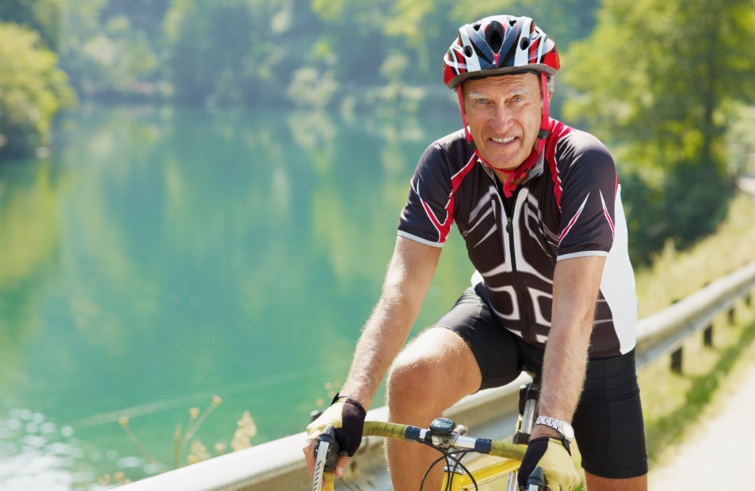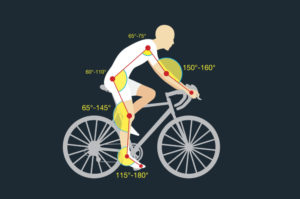There’s never a wrong time to get into cycling whether at 5 years old or starting at 50 years old. We all do it for various reasons but it always comes down to the fact that it is fun and enjoyable. Age can be seen as a hurdle by many and it can be if you don’t know a few things to look out for going into it.
There’s a learning curve with everything, and with age you’ve probably figured out the best way to excel at something. Know the background and what you need to do ahead of time to best prepare yourself. Taking a few easy steps toward cycling starting at 50 will help ensure a smooth start keeping you safe, healthy, and riding well into your prime years.

Conquering the Fear
There can be a healthy dose of fear when starting anything new especially something like cycling that has a number of variables. The biggest thing in conquering those fears in cycling is understanding the risks and your specific fears. A few big fears are as follows:
- Afraid of not succeeding.
- Afraid of the level of exertion.
- Afraid of injury and crashing.
These are all valid fears that if you didn’t have you would be un-human. Cycling can be a difficult sport but it’s all what you make of it. If you go and try to do a long steep climb you might not succeed in your first week of riding. However if you begin slowly and set small, reachable goals you will not only succeed but also grow as a rider to be able to accomplish that climb and more.
With age, individuals do have to be more concerned with what their body can handle. The cardiovascular system, the thing that is taxed the most during riding, is incredibly robust and flexible. As you start riding more and more, it too will become stronger and more resilient. Riding at a higher intensity will strengthen your heart not only making you a better cyclist but also stronger in general as you age due to being able to pump more blood with less effort. Heart health is imperative with age and cycling is a great way to keep it healthy.
Cycling does have the potential to cause injury but the majority of injuries and crashes are due to an error in judgement by the individual. As you’ll see below, having a good bike fit will help to avoid injuries. The best way to avoid crashes is to be good at handling your bike and making quick, risk-averse decisions. Becoming a better bike handler will come with experience but you can do a few things to practice your skills. (“Bike Skills: Cornering-Techniques to Know and get Good At“)
What You Must Do First
As with any new endeavors, and cycling in particular, you must go see your doctor to see where you’re at physically to make sure you are healthy enough to indulge in the sport. Depending on history, they may look at a number of things but the one that they will most definitely look at is blood pressure. This is a good metric to not only make sure is within an acceptable range to begin riding but also to get checked on a regular basis to see how your riding is improving your health. Also be sure to ask your doctor any questions you may have regarding your cycling in particular.
Getting a Good Fit

Before you start riding you are going to want to make sure that you have a good fit on the bike. With age, everything isn’t as flexible as it used to be and injuries can occur more easily and definitely take longer to recover from. The best way to avoid this is to make sure you are in the perfect position on the bike to not put too much strain on any one area. A professional fit is a good idea or you can find more information here on (“How to Do a Proper Bike Fit“) to get the most out of fitting yourself.
One good tip on top of having a proper fit on the bike is having a comfortable saddle. Everyone is different in their preferences so make sure you try a few and get one that fits. You can find more on (“How to Choose the Best Bike Saddle“)on getting the right saddle for you.
Getting Started
As you start riding you want to make sure you don’t go overboard the first couple of rides. All of the cycling muscles and tendons are going to take longer to adapt to the stresses than they would in your twenties. Try and keep rides flat and if you do go over any climbs make sure you spin at a higher cadence. As you continue to ride more and more, a good metric to not overdo it is to not increase your riding more than 10% each week in volume, duration or intensity.
One of the big benefits to riding on top of the health side of things is the social aspect. Cycling is a great way to meet new people and continue the relationship with great friends. As you first start riding more however, you should do a few rides on your own to make sure that you’re comfortable doing things such as clipping in (if you’re riding with clipless pedals), turning, braking, as well as riding in traffic. If you are still struggling with these when you start riding in a group, you can pose a danger to others. A great way to learn and get good at these things is to ride with one other more experienced rider who can give you tips on what to do and more importantly what not to do.
The Importance of Recovery
With cycling past 50, your body is going to take longer to recover than it used to. A big ride is going to take longer to recover from as well as the smaller rides even. There are two big things here that are going to make a difference. One is not trying to do too much after you are already tired. The second is to focus on recovery.
Making sure you get enough sleep after bigger rides as well as eating properly and stretching will help improve your recovery time. Everyone is a little bit different so with a little bit of trial and error you will find what works best for you.
Cycling starting at 50 is a great time to get into a new and exciting sport that not only is going to be fun but will also help your health and well-being. Knowing these few things before you get into riding and as you first start out will help to make sure that it is a beneficial direction on all levels for you. Cycling is fun, enjoying, and rewarding regardless of age. It’s always better late than never. Start smart and you’ll be riding for decades to come.